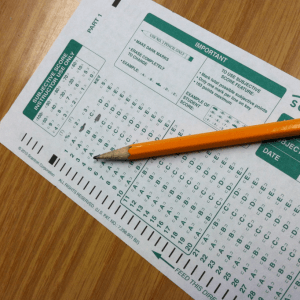 Public high school is intended for every student. Unfortunately, not every student is intended for high public school. Due to the massive numbers public schools must accommodate, not every student will get the help he or she needs to succeed academically. There are also a few other key reasons.
Public high school is intended for every student. Unfortunately, not every student is intended for high public school. Due to the massive numbers public schools must accommodate, not every student will get the help he or she needs to succeed academically. There are also a few other key reasons.
Four Reasons Why Public High Schools Can’t Help Every Student
1) Standardized Instruction & Testing
Public high school education in the U.S. is mostly based on a system of standardized testing. For some students, this limited scope of source material does not assist in their learning. The very nature of standardized teaching and learning also does not lend itself well to personalized instruction, something many students need to understand and master these subjects.
Most public schools are also not equipped to ensure the academic success of every student due to limited funding and resources.
2) Student Attitudes
The College Board in 2014 reported a 21 point drop in average SAT scores since 2006. Factors that contribute to low
or high performance include self-control, determination, and motivation. Boredom is another area.
Public school students are generally underchallenged in the classroom, and most consider high school as a place to socialize. While social skills are important, many students lose sight of the reason they are in school. Students who do not succumb to popular student culture are sometimes stereotyped as “nerds” and/or ostracized.
3) Learning Disorders
Another challenge for public schools is learning disorders, which can greatly affect an afflicted student’s attitude toward their education. Often times in public schools, learning challenges are not addressed until a student establishes a pattern of failing — at which time the student is frustrated and/or uninterested in school.
Students with learning differences especially need personalized instruction and additional support in order to succeed, and often public schools simply do not have the manpower to provide it. Boys, unfortunately, are also more likely to struggle academically than girls, as noted by in the popular PBS Raising Boys report.
4) Inadequate Tracking
Public schools have a difficult time gauging and tracking students who are at risk of failing classes. Students who are frequently absent or frequently under-perform are at higher risk of dropping out. Even hard-working teens struggling in specific subjects can fall through the cracks.
This is not entirely the fault of a public school. When 30-plus students to one teacher or 300-plus students to one counselor start to become the norm, it is simply harder for educators to manage student performance. Dedicated tracking and support of individual students is therefore something desperately needed in the public school system.
Alternative School Option for Parents
Alternative education options exist for parents with children struggling in traditional high schools. Chief among these choices are boarding schools.
Compared to U.S. public high schools, boarding schools are better suited to work with students who cannot quite find their niche in a traditional high school. Nearly all boarding schools provide a challenging academic curriculum and offer learning opportunities that are often not available in public schools. Marine Military Academy, for example, offers a college-preparatory curriculum as well as leadership training for boys.
In addition, boarding schools ultimately help because they:
- Provide a distraction-free environment that is conducive to learning.
- Provide smaller classes so students can receive the personalized instruction they need to succeed.
- Promote an environment where academic and personal excellence are the norm.
- Promote clubs and extracurricular activities, such as sports, band and drama club, to keep students engaged in school and discover their talents.
- Provide a truly comprehensive education that includes life skills, communication and independence.
Marine Military Academy in Harlingen, Texas, is a college-preparatory boarding school for young men in grades 8-12. For more information on MMA, visit the website: http://www.mma-tx.org



